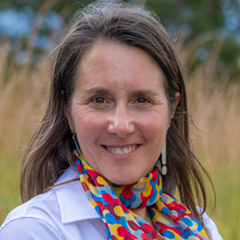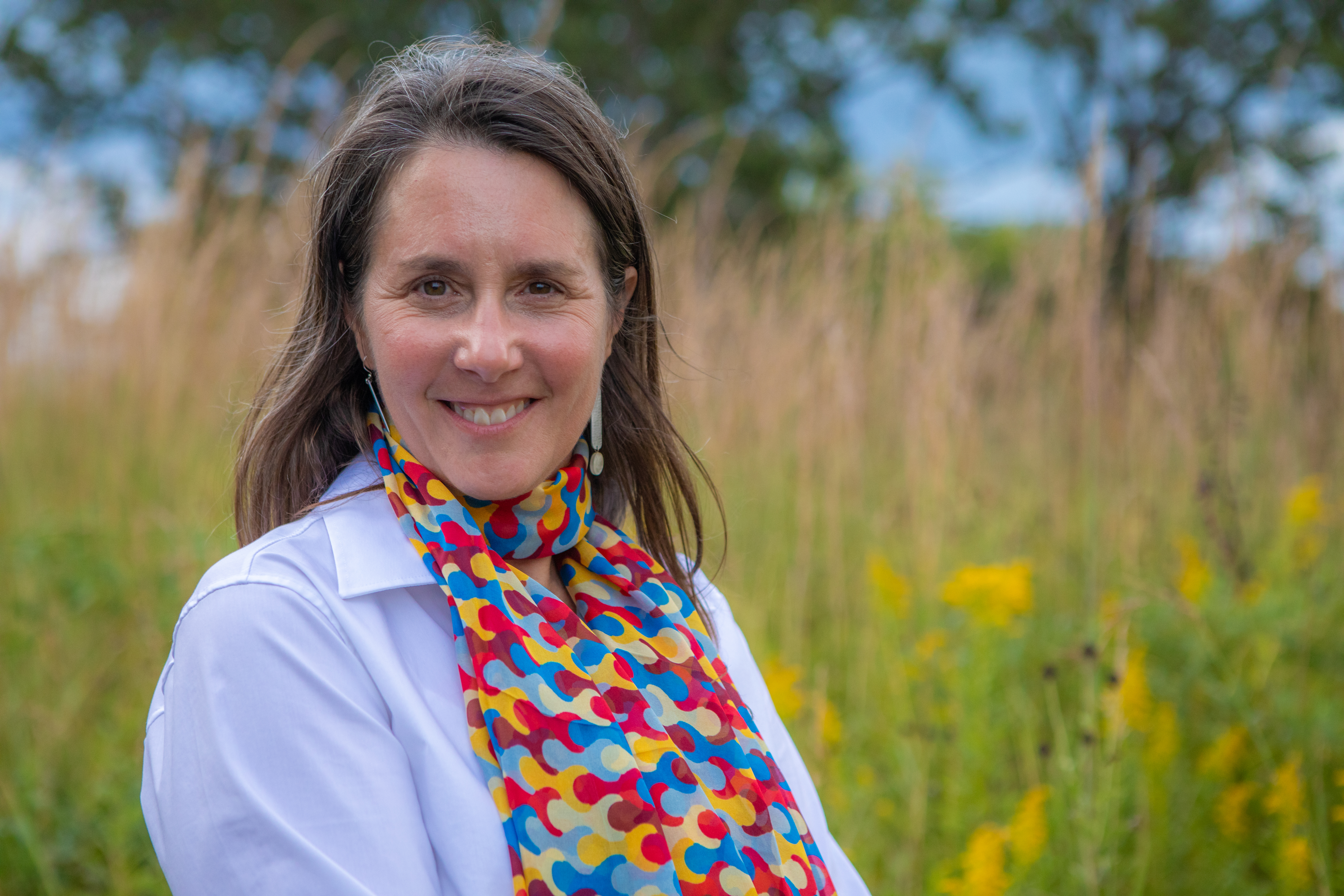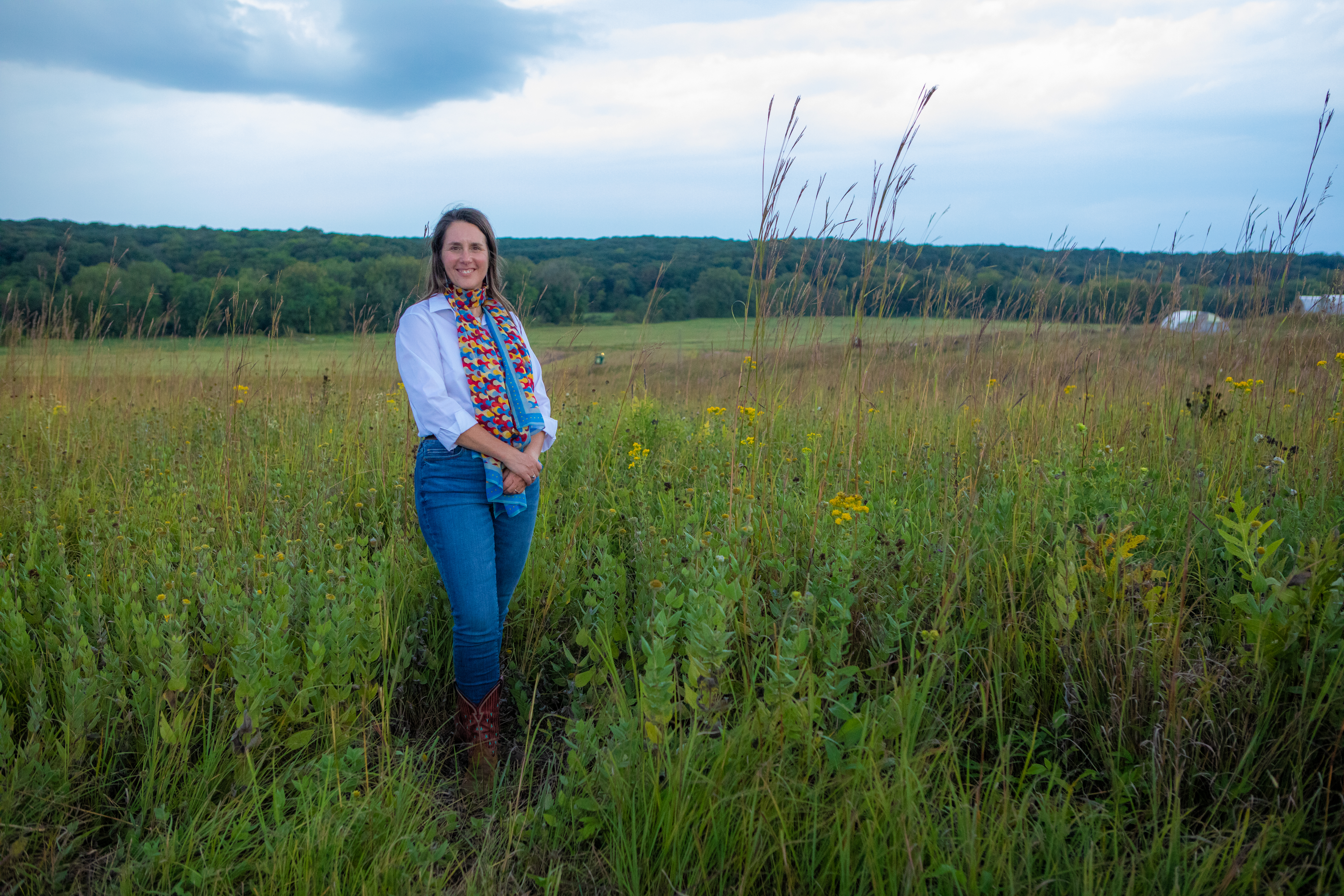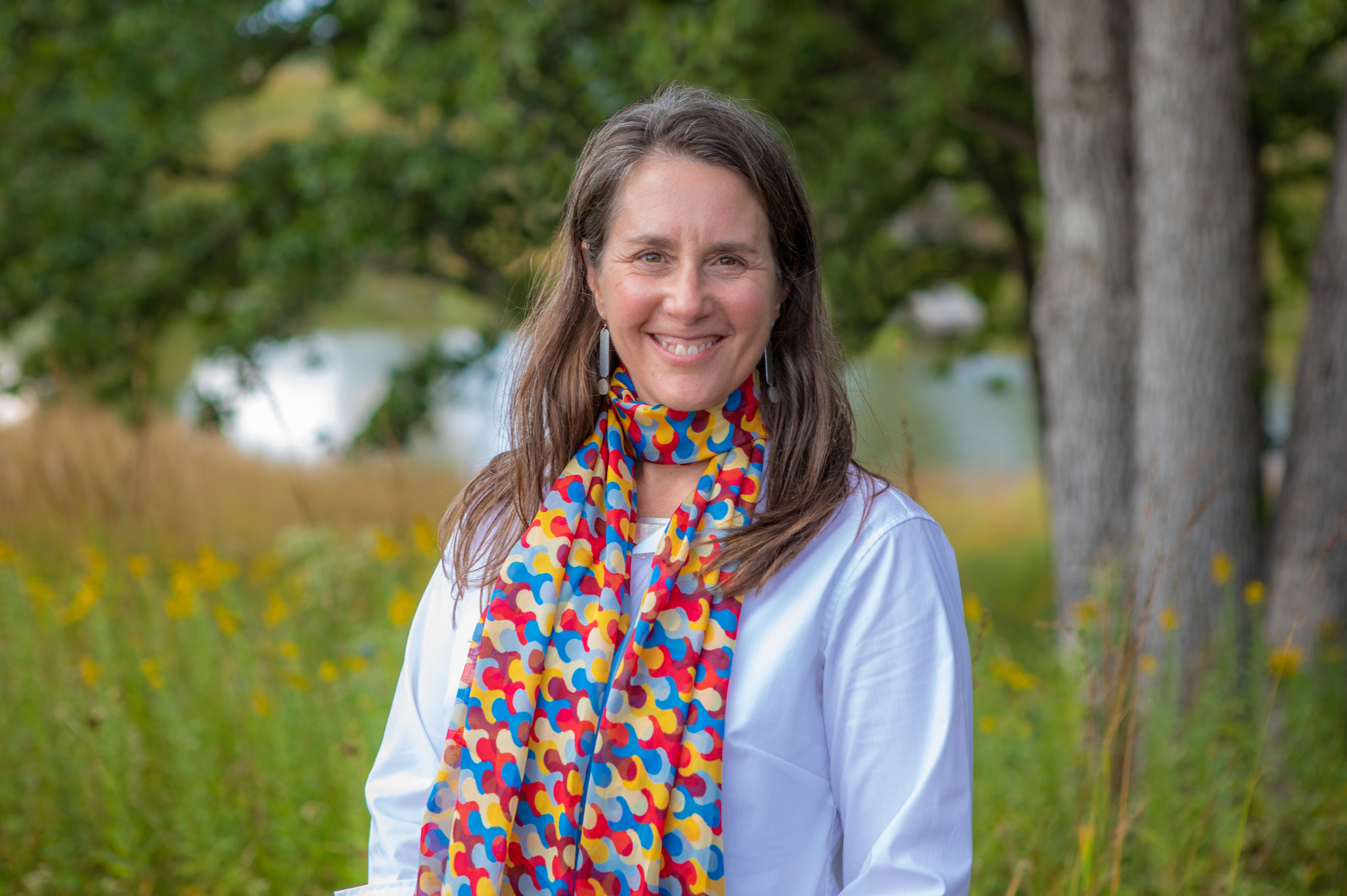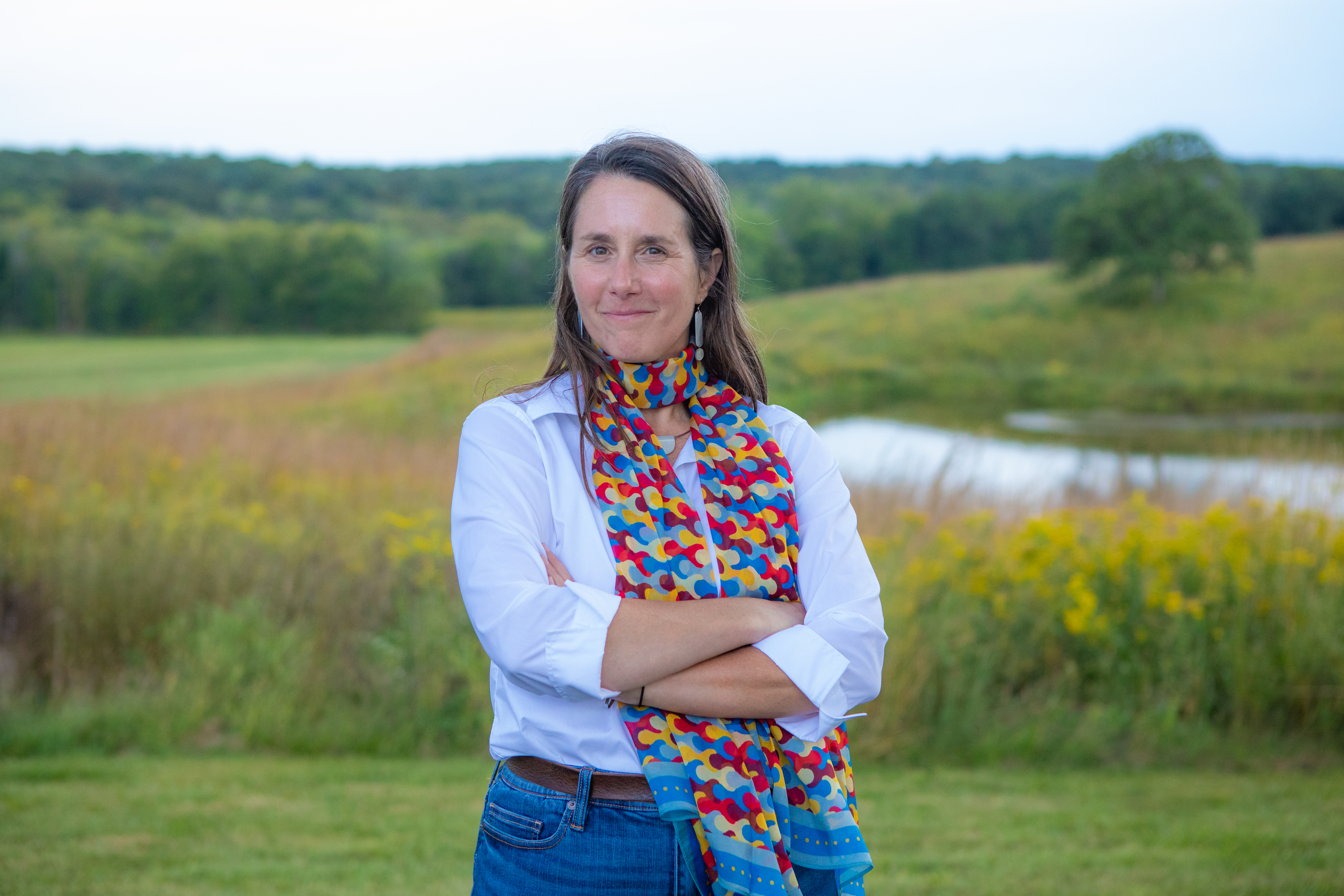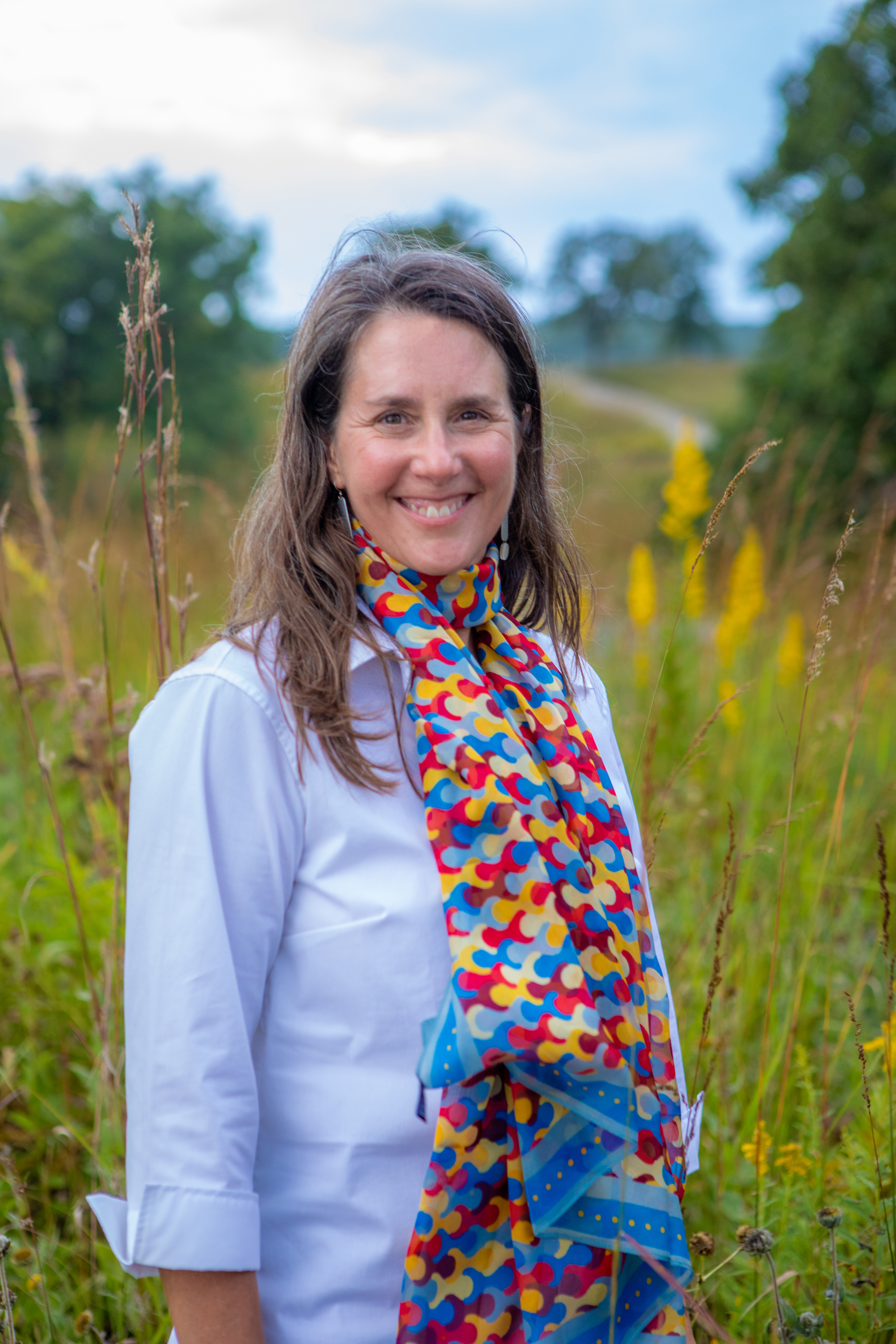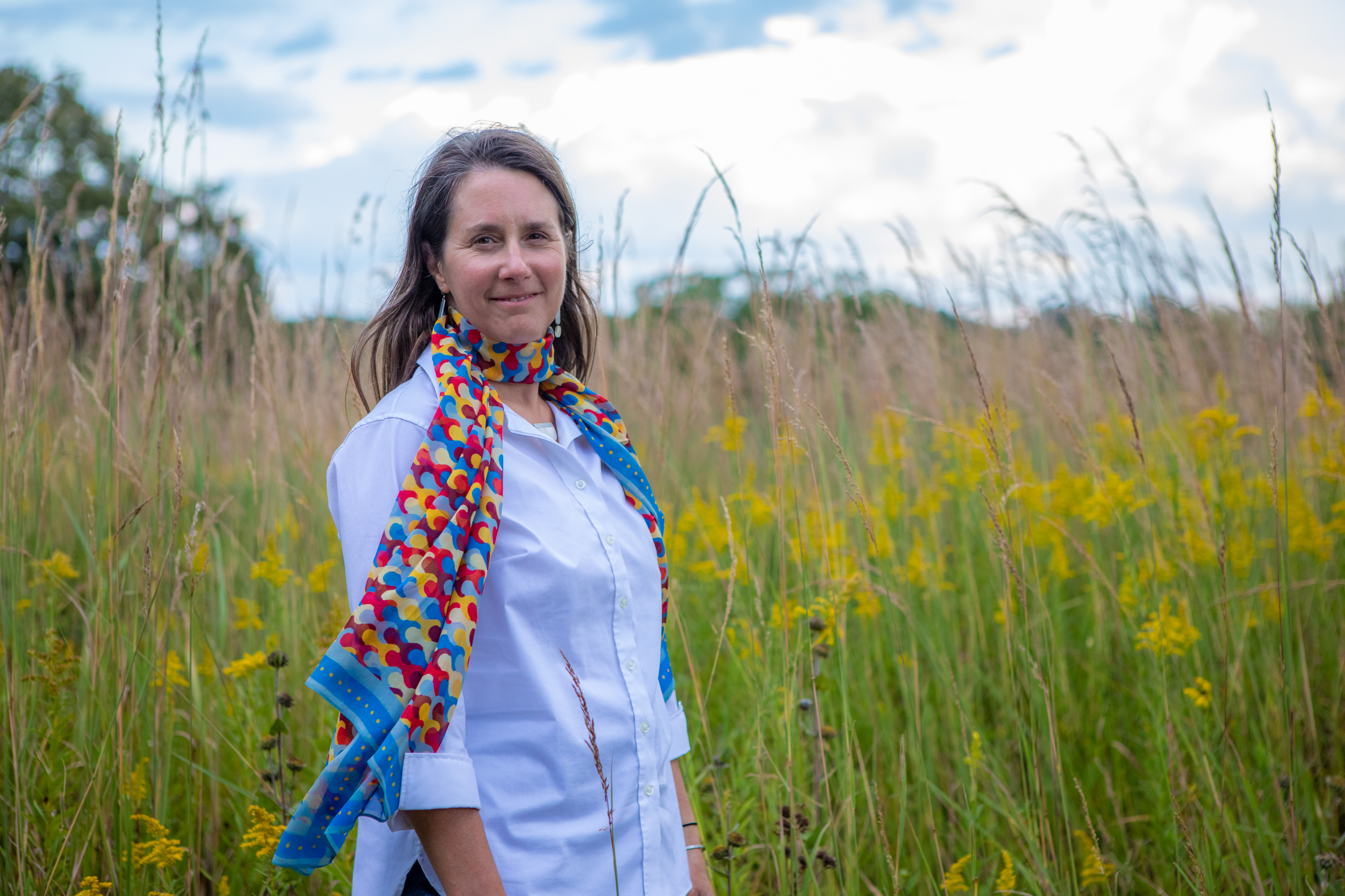About Lisa's Work
Lisa Schulte Moore is a landscape ecologist working closely with farmers to build more sustainable and resilient agricultural systems. She combines expertise on the environmental, economic, and policy aspects of large-scale agriculture and food production with an ability to communicate practical information directly to landowners about ways to make their land both more productive and more sustainable over time.
Corn and soybean farming as typically practiced in the American Midwest erodes topsoil and generates nitrogen and phosphorus pollution from fertilizers. The effects are felt near (in depleted topsoil and reduced productivity) and far (in large algal blooms, or dead zones, in the Gulf of Mexico caused by chemical runoff). Schulte Moore, working with an interdisciplinary team of collaborators and farmers, has created a scientifically rigorous, practical, and scalable remedy to these problems in the STRIPS program—Science-Based Trials of Rowcrops Integrated with Prairie Strips. Under the program, strips of native perennial prairie vegetation replace a portion of a field’s crops. A mixture of wildflowers and prairie tallgrass, the strips are planted across the downslope water flow and have varying widths (from 30 to 120 feet) to optimize their ability to slow water movement off fields and prevent soil and nutrient loss. Schulte Moore and team have shown that prairie strips reduce soil erosion by 95 percent and nitrogen and phosphorus runoff by 85 and 90 percent, respectively. The prairie vegetation supports a wide array of biodiversity—native pollinators, predators for crop pests, and grassland birds and mammals—that improves both crop success and broader conservation efforts. Incorporating prairie strips is one of the least expensive agricultural conservation practices because they can be located on the least productive, and thus less profitable, parts of a field.
Schulte Moore does intensive outreach to encourage uptake of the prairie strips program. In addition to scientific publications and field demonstrations of the program’s benefits, she is lead developer of People in Ecosystems Watershed Integration (PEWI). This open-source tool allows farmers to visualize the ecosystem benefits of strips and other conservation features on their farms. Schulte Moore’s personal and long-term engagement with individual farmers has been successful in Iowa and beyond. Prairie strips are now being used in 14 states on over 115,000 acres of cropland, and that is sure to increase: the Conservation Reserve Program in the 2018 Farm Bill includes prairie strips as a conservation practice eligible for financial support. By approaching the serious challenges of food security, climate change, and conservation of our environment as networked pieces of a larger system, Schulte Moore opens new possibilities for a transformation in sustainable agriculture.







